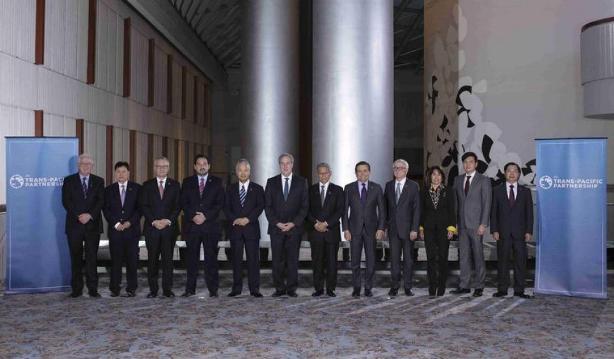Mixed Reactions On TPP Approval
Reactions from the industry after the Trans-Pacific Partnership or TPP was approved by twelve Pacific Rim countries was tepid and it appeared that the United States may have benefited the most from the agreement.
The deal was designed to liberalize business between countries that account for 40 percent of the economy of the world. Even as an agreement was reached, it is still necessary for each country to ratify it. A number of areas in the deal were taken out in order to reach the agreement. Concerns were also raised that all the details of the deal were not revealed, which made it difficult to find out who benefitted from it.
A number of companies praised the deal, which may result to comparative benefits. In Vietnam, shares of textile and seafood companies increased following the announcement.
However, the biggest producer of dairy products in the world, Fonterra Co-Operative Group Ltd, said the Trans-Pacific Partnership or TPP did not achieve its original plan of removing all tariffs. Despite this, there was a small but significant steps were made.
While financial losses were emphasized by Farmers of Canada after 3.3 percent of the dairy market of Canada was opened for imports, the fair compensation package reduced its effects. Reductions in tariffs under the deal was welcomed by a number of New Zealand and Australia companies as they gained access into the market in Japan.
Australian Sugar Milling Council CEO Dominic Nolan said it is important to concentrate on the games offered by the Trans-Pacific Partnership or TPP for sugar manufactured in Australia rather than highlight the success of the US sugar lobby in keeping a protectionist stance against the entry of sugar into the US market.
The removal of equity limits for foreign telecommunications companies in Malaysia and Vietnam was also emphasized by Canberra.
Countries that are not part of the agreement may also be affected. Centre for WTO Studies head Abhijit Das said concerns were raised on the effects on textile and leather exports to the United States by competition. Shares of car manufacturers in South Korea declined due concerns on the export gains of countries that are part of the agreement, like Japan.
While tariffs on vehicles manufactured in Japan were reduced by the United States for the next thirty years, access for US manufacturers in the Japanese market increased. Despite this, Ford Motor Co encouraged lawmakers to reject the Trans-Pacific Partnership or TPP since it does not provide sanctions on guilty of currency manipulation. E-commerce companies, like Uber and Google, praised the agreement since removed restrictions on sales in foreign markets.
While it remains uncertain how local retailers will be affected by the agreement, Australian Retailers Association Executive Director Russell Zimmerman said it will be necessary for international barriers to be lifted to allow Australian retailers to compete in other countries.
The Pharmaceutical Research and Manufacturers of America was disappointed after US negotiators were unable to secure a minimum protection of twelve years for new biologic drugs. Chugai Pharmaceutical Co Ltd CEO Osamu Nagayama was thankful the standard did not fall below the eight year monopoly period of Japan. Chugai Pharmaceutical Co Ltd sells drugs into the US market through Roche of Switzerland.
If the data protection period was shortened, it will be challenging for pharmaceutical companies to work on research and development, Nagayama added.
A number of business organizations in Europe said the Trans-Pacific Partnership or TPP is also expected to encourage discussions between the European Union and Japan.
